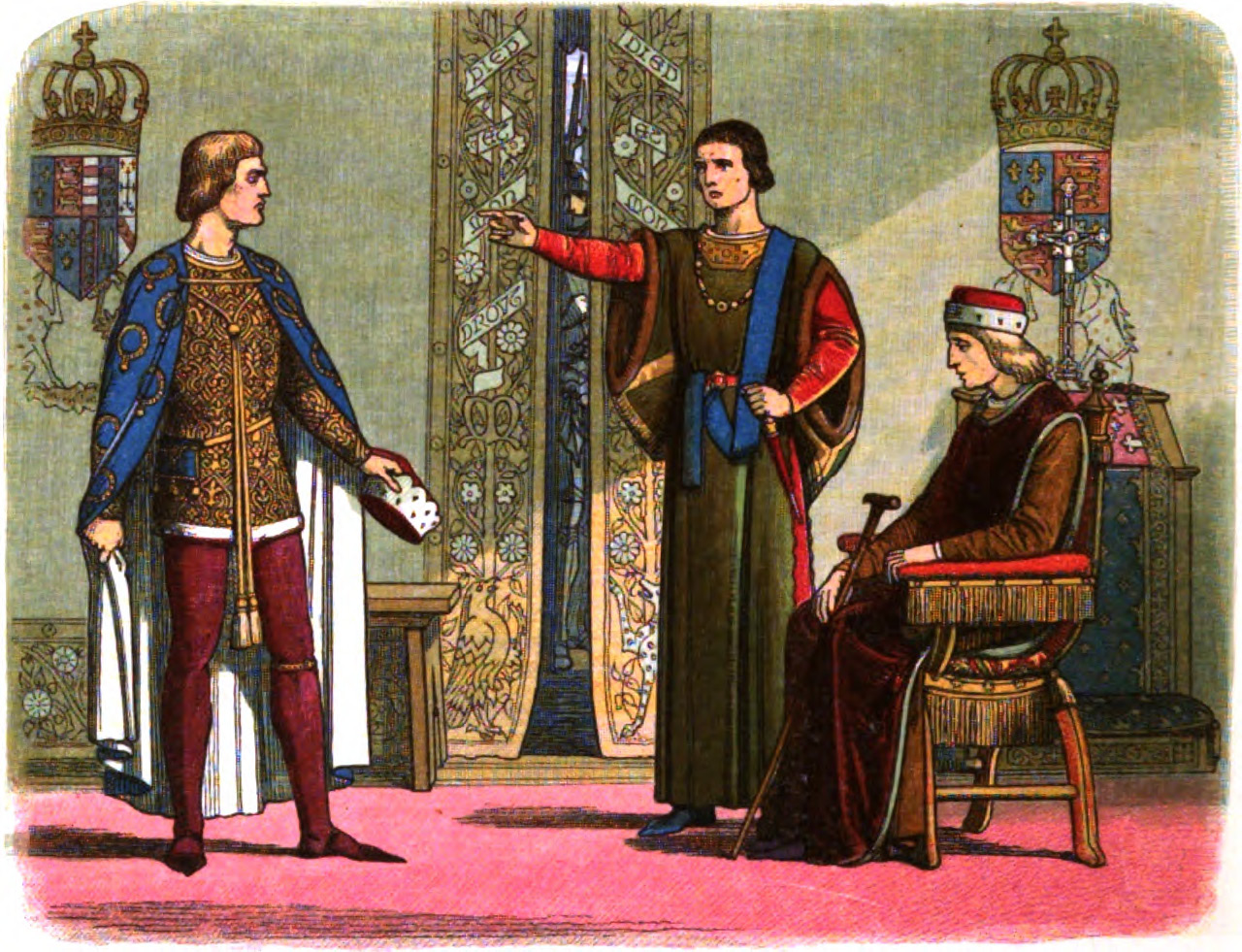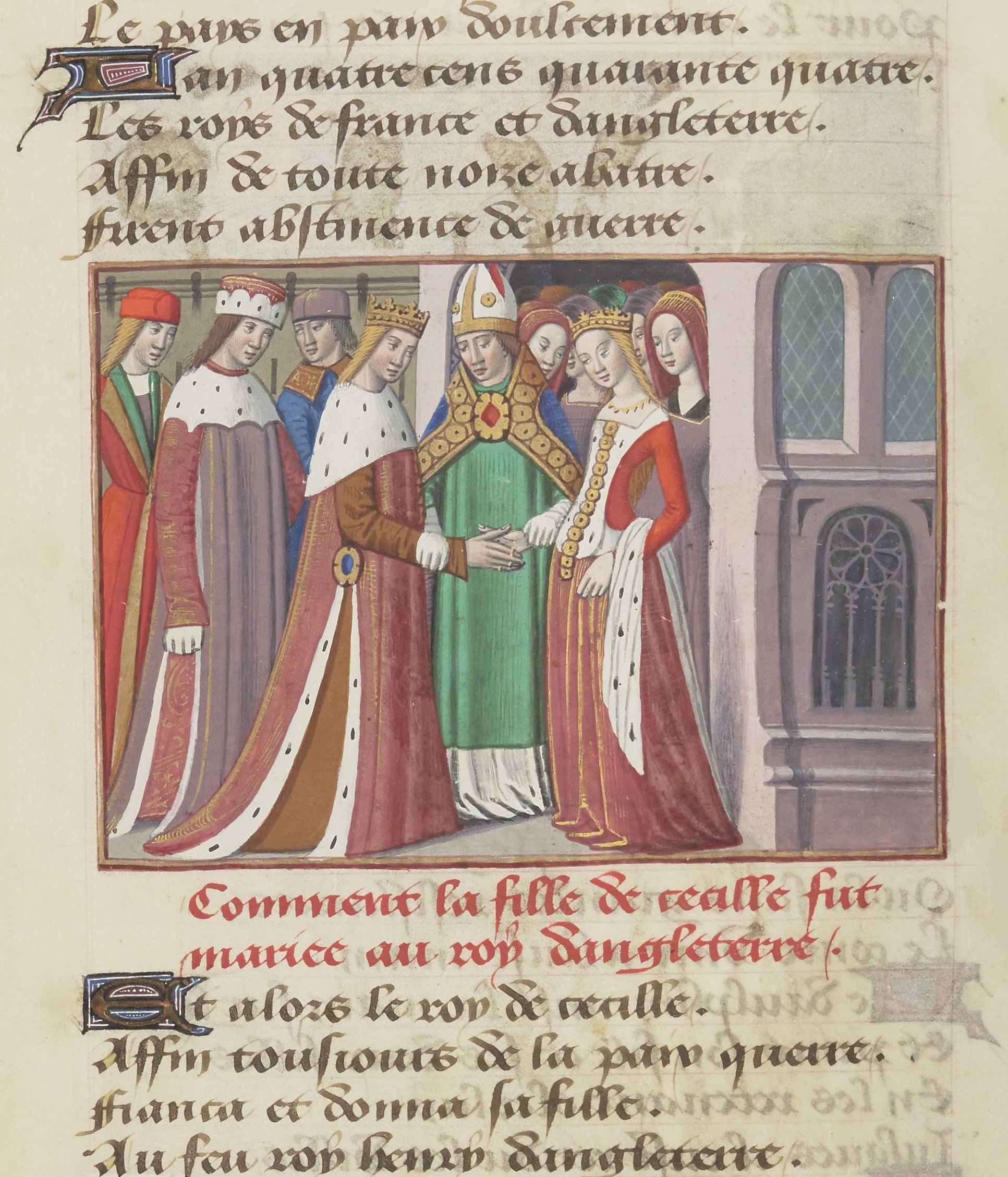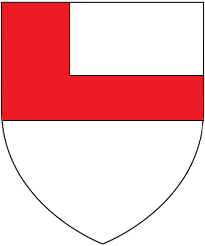|
The Lady Of The Rivers
''The Lady of the Rivers'' is a 2011 historical novel by Philippa Gregory, part of her series ''The Cousins' War''. The story is narrated by Jacquetta of Luxembourg, mother of Elizabeth Woodville, and covers the reign of the Lancastrian King Henry VI of England, Henry VI. The novel serves as a prequel to Gregory's ''The White Queen (novel), The White Queen'' (2009), the story of Elizabeth's reign as Queen consort of England. Plot Fourteen-year-old Jacquetta, whose noble family claims descendance from the water goddess Melusine, learns the secrets of her inherited powers from her great-aunt Joan, Countess of Ligny, Jehanne, the Demoiselle of Luxembourg. Jacquetta befriends Joan of Arc, who is a prisoner at her uncle's castle, but later watches in horror as Joan is burned at the stake by the English-backed church. Three years later at age 17, Jacquetta is given in marriage to John, Duke of Bedford, the uncle to King Henry VI of England, Henry VI and the English regent in France. ... [...More Info...] [...Related Items...] OR: [Wikipedia] [Google] [Baidu] |
Philippa Gregory
Philippa Gregory (born 9 January 1954) is an English historical novelist who has been publishing since 1987. The best known of her works is ''The Other Boleyn Girl'' (2001), which in 2002 won the Romantic Novel of the Year Award from the Romantic Novelists' Association and has been adapted into two films. ''AudioFile (magazine), AudioFile'' magazine has called Gregory "the queen of British historical fiction". Early life and education Philippa Gregory was born on 9 January 1954 in Nairobi, at that time serving as capital city of the Kenya Colony, Colony and Protectorate of Kenya (modern-day Kenya, Republic of Kenya), the second daughter of Elaine (Wedd) and Arthur Percy Gregory, a radio operator and navigator for East African Airways. When she was two years old, her family moved to Bristol, UK. [...More Info...] [...Related Items...] OR: [Wikipedia] [Google] [Baidu] |
The White Queen (novel)
''The White Queen'' is a 2009 historical novel by Philippa Gregory, the first of her series '' The Cousins' War''. It tells the story of Elizabeth Woodville, queen consort of King Edward IV of England. The 2013 BBC One television series '' The White Queen'' is a 10-part adaptation of Gregory's novels ''The White Queen'', '' The Red Queen'' (2010) and '' The Kingmaker's Daughter'' (2012), and features Rebecca Ferguson as Elizabeth Woodville. Gregory's 2011 novel ''The Lady of the Rivers'' is a prequel to ''The White Queen'', narrated by Elizabeth's mother Jacquetta of Luxembourg. Plot Young widow Lady Elizabeth Grey puts herself in the path of King Edward IV to seek his assistance in reclaiming her late husband's estate for her sons, but it is love at first sight for both of them. They marry in secret, which later puts Edward, Elizabeth and Elizabeth's entire family at odds with Richard Neville, 16th Earl of Warwick, who had helped place Edward on the throne while expectin ... [...More Info...] [...Related Items...] OR: [Wikipedia] [Google] [Baidu] |
Richard Of York, 3rd Duke Of York
Richard of York, 3rd Duke of York (21 September 1411 – 30 December 1460), also named Richard Plantagenet, was a leading English magnate and claimant to the throne during the Wars of the Roses. He was a member of the ruling House of Plantagenet by virtue of being a direct male-line descendant of Edmund of Langley, King Edward III's fourth surviving son. However, it was through his mother, Anne Mortimer, a descendant of Edward III's second surviving son, Lionel of Antwerp, that Richard inherited his strongest claim to the throne, as the opposing House of Lancaster was descended from John of Gaunt, Duke of Lancaster, the third surviving son of Edward III. He also inherited vast estates and served in various offices of state in Ireland, France and England, a country he ultimately governed as Lord Protector due to the mental instability of King Henry VI. Richard's conflicts with Henry's wife, Margaret of Anjou, and other members of Henry's court, such as Edmund Beaufort, ... [...More Info...] [...Related Items...] OR: [Wikipedia] [Google] [Baidu] |
Edmund Beaufort, 2nd Duke Of Somerset
Edmund Beaufort, 2nd Duke of Somerset, 4th Earl of Somerset, 1st Earl of Dorset, 1st Marquess of Dorset styled 1st Count of Mortain, (140622 May 1455), was an English nobleman and an important figure during the Hundred Years' War. His rivalry with Richard, Duke of York, was a leading cause of the Wars of the Roses. Origins Edmund Beaufort was the fourth surviving son of John Beaufort, 1st Earl of Somerset, the eldest of the four legitimised children of John of Gaunt (1340–1399) (third surviving son of King Edward III) by his mistress, later wife, Katherine Swynford. Edmund's mother was Margaret Holland, a daughter of Thomas Holland, 2nd Earl of Kent, by his wife Alice FitzAlan, a daughter of Richard FitzAlan, 10th Earl of Arundel, by his wife Eleanor of Lancaster, fifth daughter of Henry, 3rd Earl of Lancaster, a grandson of King Henry III. Edmund was thus a cousin of both Richard, Duke of York, and the Lancastrian King Henry VI. Career Although he was the head o ... [...More Info...] [...Related Items...] OR: [Wikipedia] [Google] [Baidu] |
Margaret Of Anjou
Margaret of Anjou (; 23 March 1430 – 25 August 1482) was Queen of England by marriage to King Henry VI from 1445 to 1461 and again from 1470 to 1471. Through marriage, she was also nominally Queen of France from 1445 to 1453. Born in the Duchy of Lorraine into the House of Valois-Anjou, Margaret was the second eldest daughter of René of Anjou King of Naples, and Isabella, Duchess of Lorraine. Margaret was one of the principal figures in the series of dynastic civil wars known as the Wars of the Roses and at times personally led the Lancastrian faction. Some of her contemporaries, such as the Duke of Suffolk, praised "her valiant courage and undaunted spirit" and the 16th-century historian Edward Hall described her personality in these terms: "This woman excelled all other, as well in beauty and favour, as in wit and policy, and was of stomach and courage, more like to a man, than a woman". Owing to her husband's frequent bouts of insanity, Margaret ruled the kingdom ... [...More Info...] [...Related Items...] OR: [Wikipedia] [Google] [Baidu] |
Richard Woodville, 1st Earl Rivers
Richard Woodville, 1st Earl Rivers (1405 – 12 August 1469), also Wydeville, was the father of Elizabeth Woodville and father-in-law of Edward IV. Early life Born at Maidstone in Kent, Richard Woodville was the son of Richard Wydeville (Woodville), chamberlain to the Duke of Bedford, and Joan Bittlesgate (or Bedlisgate), the daughter of Thomas Bittlesgate of Knightstone"Woodville Family", http://www.tudorplace.com.ar/WOODVILLE.htm. Accessed on 10-4-2015. in the parish of Ottery St Mary in Devon. He was also a grandson of John Wydeville who was Sheriff of Northamptonshire (in 1380, 1385, 1390). Marriage and courtly career Woodville followed his father into service with the Duke of Bedford. In 1433 the Duke had married the 17-year-old Jacquetta of Luxembourg; she was the Duke's second wife and he was significantly older and in ill health. When the Duke died in 1435, Jacquetta was left a childless and wealthy widow. She was required to seek permission from King Hen ... [...More Info...] [...Related Items...] OR: [Wikipedia] [Google] [Baidu] |
Alchemy
Alchemy (from the Arabic word , ) is an ancient branch of natural philosophy, a philosophical and protoscientific tradition that was historically practised in China, India, the Muslim world, and Europe. In its Western form, alchemy is first attested in a number of pseudepigraphical texts written in Greco-Roman Egypt during the first few centuries AD.. Greek-speaking alchemists often referred to their craft as "the Art" (τέχνη) or "Knowledge" (ἐπιστήμη), and it was often characterised as mystic (μυστική), sacred (ἱɛρά), or divine (θɛíα). Alchemists attempted to purify, mature, and perfect certain materials. Common aims were chrysopoeia, the transmutation of " base metals" (e.g., lead) into "noble metals" (particularly gold); the creation of an elixir of immortality; and the creation of panaceas able to cure any disease. The perfection of the human body and soul was thought to result from the alchemical ''magnum opus'' ("Great Work"). The ... [...More Info...] [...Related Items...] OR: [Wikipedia] [Google] [Baidu] |
Regent
In a monarchy, a regent () is a person appointed to govern a state because the actual monarch is a minor, absent, incapacitated or unable to discharge their powers and duties, or the throne is vacant and a new monarch has not yet been determined. The rule of a regent or regents is called a regency. A regent or regency council may be formed ''ad hoc'' or in accordance with a constitutional rule. ''Regent'' is sometimes a formal title granted to a monarch's most trusted advisor or personal assistant. If the regent is holding the position due to their being in the line of succession, the compound term '' prince regent'' is often used; if the regent of a minor is their mother, and she is wife or widow of the king, she would be referred to as ''queen regent''. If the formally appointed regent is unavailable or cannot serve on a temporary basis, a may be appointed to fill the gap. In a monarchy, a regent usually governs due to one of these reasons, but may also be elected to ... [...More Info...] [...Related Items...] OR: [Wikipedia] [Google] [Baidu] |
John, Duke Of Bedford
John of Lancaster, Duke of Bedford (20 June 1389 – 14 September 1435) was a medieval English prince, general, and statesman who commanded England's armies in France during a critical phase of the Hundred Years' War. Bedford was the third son of King Henry IV of England, brother to Henry V, and acted as regent of France for his nephew Henry VI. Despite his military and administrative talent, the situation in France had severely deteriorated (for the English) by the time of his death. Bedford was a capable administrator and soldier, and his effective management of the war brought the English to the height of their power in France. However, difficulties mounted after the arrival of Joan of Arc, and his efforts were further thwarted by political divisions at home and the wavering of England's key ally, Duke Philip of Burgundy and his faction, the Burgundians. In the last years of Bedford's life, the conflict devolved into a war of attrition, and he became increasingly unable t ... [...More Info...] [...Related Items...] OR: [Wikipedia] [Google] [Baidu] |
Burned At The Stake
Death by burning is an list of execution methods, execution, murder, or suicide method involving combustion or exposure to extreme heat. It has a long history as a form of public capital punishment, and many societies have employed it as a punishment for and warning against crimes such as treason, heresy, and witchcraft. The best-known execution of this type is burning at the stake, where the condemned is bound to a large wooden stake and a fire lit beneath. A holocaust is a religious animal sacrifice that is completely consumed by fire, also known as a burnt offering. The word derives from the ancient Greek holokaustos, the form of sacrifice in which the victim was reduced to ash, as distinguished from an animal sacrifice that resulted in a communal meal. Effects In the process of being burned to death, a body experiences burns to tissue, changes in content and distribution of body fluid, fixation (histology), fixation of tissue, and shrinkage (especially of the skin). Intern ... [...More Info...] [...Related Items...] OR: [Wikipedia] [Google] [Baidu] |
Joan Of Arc
Joan of Arc ( ; ; – 30 May 1431) is a patron saint of France, honored as a defender of the French nation for her role in the siege of Orléans and her insistence on the Coronation of the French monarch, coronation of Charles VII of France during the Hundred Years' War. Claiming to be acting under divine guidance, she became a military leader who transcended gender roles and gained recognition as a savior of France. Joan was born to a propertied peasant family at Domrémy-la-Pucelle, Domrémy in northeast France. In 1428, she requested to be taken to Charles VII, later testifying that she was guided by visions from the archangel Michael, Margaret the Virgin, Saint Margaret, and Catherine of Alexandria, Saint Catherine to help him save France from English domination. Convinced of her devotion and purity, Charles sent Joan, who was about seventeen years old, to the siege of Orléans as part of a relief army. She arrived at the city in April 1429, wielding her banner a ... [...More Info...] [...Related Items...] OR: [Wikipedia] [Google] [Baidu] |
Luxembourg
Luxembourg, officially the Grand Duchy of Luxembourg, is a landlocked country in Western Europe. It is bordered by Belgium to the west and north, Germany to the east, and France on the south. Its capital and most populous city, Luxembourg City, is one of the four institutional seats of the European Union and hosts several EU institutions, notably the Court of Justice of the European Union, the highest judicial authority in the EU. As part of the Low Countries, Luxembourg has close historic, political, and cultural ties to Belgium and the Netherlands. Luxembourg's culture, people, and languages are greatly influenced by France and Germany: Luxembourgish, a Germanic language, is the only recognized national language of the Luxembourgish people and of the Grand Duchy of Luxembourg; French is the sole language for legislation; and both languages along with German are used for administrative matters. With an area of , Luxembourg is Europe's seventh-smallest count ... [...More Info...] [...Related Items...] OR: [Wikipedia] [Google] [Baidu] |






